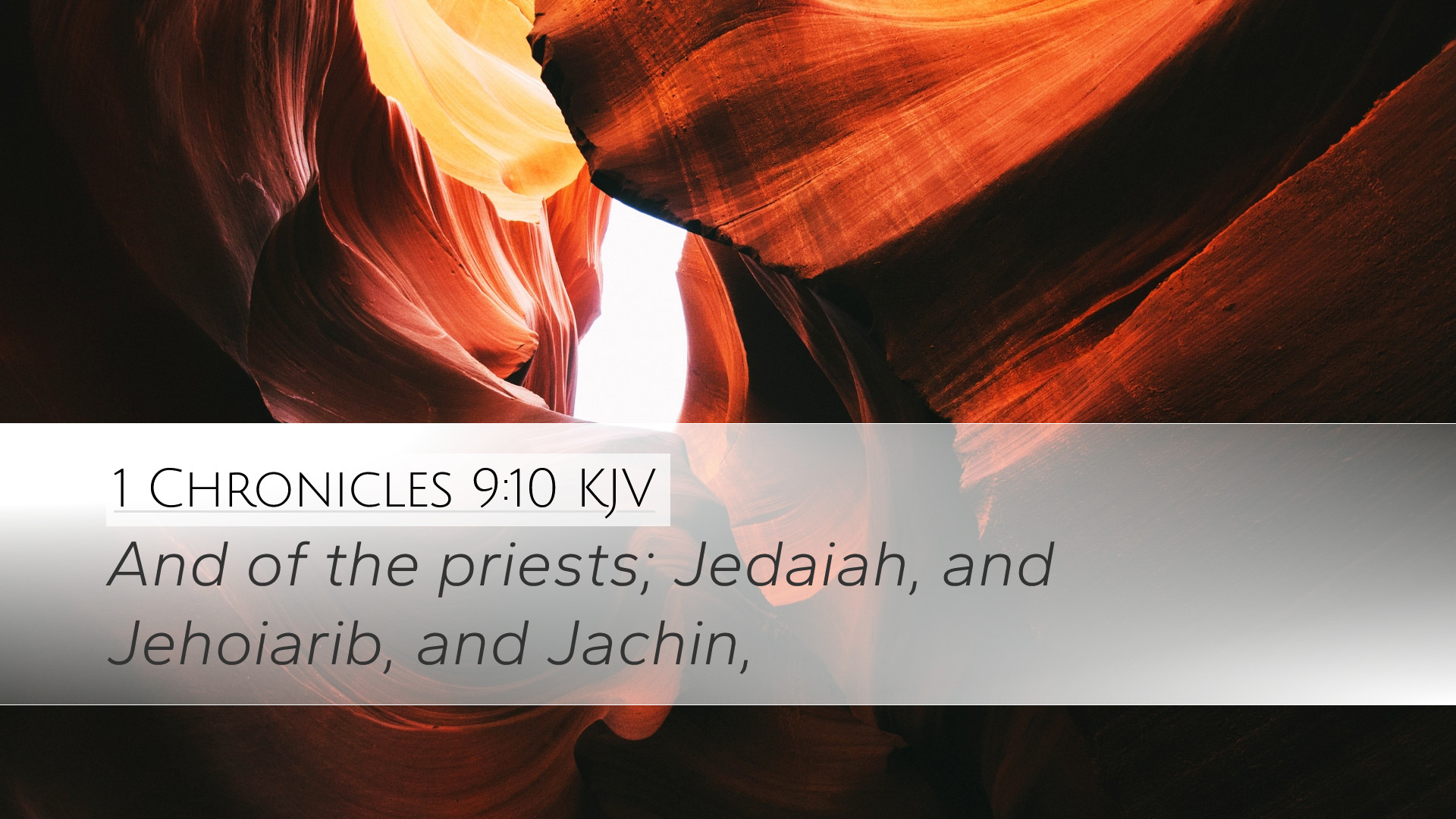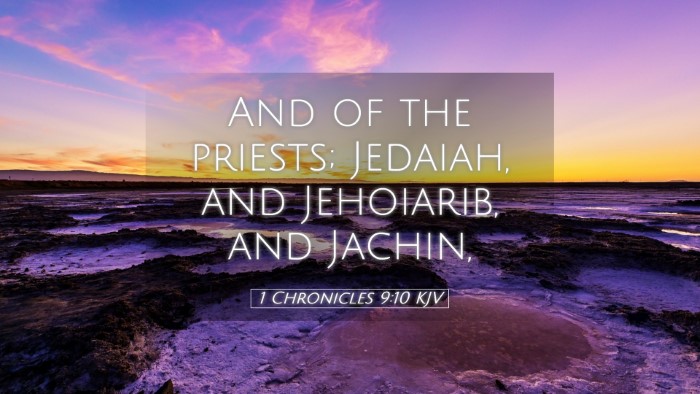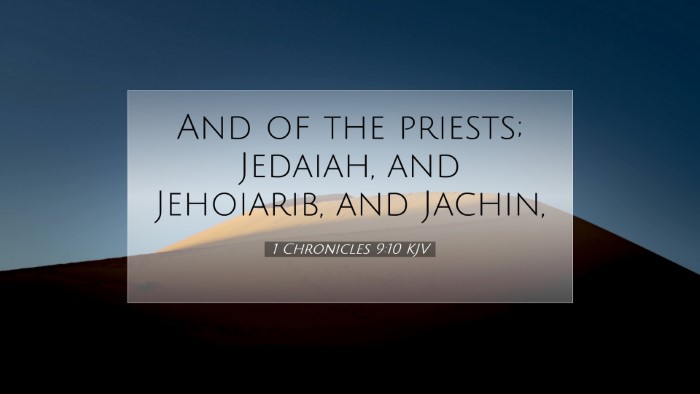Commentary on 1 Chronicles 9:10
Verse Text: "And of the priests; Jedaiah, and Jehoiarib, and Jonathan."
Introduction
The genealogical records in 1 Chronicles serve to establish the legitimacy and continuity of the Israelite priesthood and its association with the worship and service of God. This verse, while brief, is part of a larger narrative that underscores the importance of the priestly line, particularly in the context of returning exiles and the rebuilding of the temple. In examining this verse, we will draw insights from historical context, symbolic meaning, and theological implications.
Contextual Analysis
1 Chronicles is primarily concerned with the history of Israel from a priestly perspective, emphasizing the significance of worship and the temple. With the return from exile, the identification of rightful priests was crucial for the re-establishment of proper worship practices. This chapter lists the descendants of the priests, showing that the lineage and continuity of the priestly roles were maintained even through the tumultuous times of exile.
Insights from Commentaries
Matthew Henry's Commentary
Matthew Henry emphasizes the matter of priestly heritage. He points out that the mention of Jedaiah, Jehoiarib, and Jonathan signifies not only a record of names but also a history of faithfulness in service to God. Henry notes that the priests played a vital role in mediating between God and His people and highlights the importance of their commitment to uphold God's law during times of national crisis.
Albert Barnes' Notes on the Bible
Albert Barnes elaborates on the significance of the names mentioned. He explains that these priests came from well-known families, which adds weight to their legitimacy in serving in the temple. Barnes points out that Jedaiah, in particular, is often associated with a traditional priestly line which dates back to the founding of the temple rites established by Moses. The stability of priests as depicted here was essential for maintaining the worship practices among the returning exiles.
Adam Clarke's Commentary
Adam Clarke dives into a further theological implication of this priestly mention by drawing connections between the historical precedence and the spiritual authority the priests held. He explains that this lineage serves as a reminder of God's unchanging covenant with Israel. The priests, through their hereditary lines, were a means of grace and continuity of testimonies of God's dealings with His people, designed to sustain their faith in the unique relationship they held with God.
Theological Implications
Combining these insights, several theological implications arise from this passage:
- Divine Faithfulness: The mention of priests signifies God's enduring faithfulness to His covenant people. It reflects God's ongoing work through human instruments for the worship and redemption of His people.
- Importance of Heritage: The text underscores the significance of heritage in spiritual matters. The realization that rightful worship requires a legitimate priesthood evokes a deeper understanding of God’s prescribed order in approaching holiness.
- Preparation for Worship: The careful listing of priests serves to remind the community of the preparatory means God has provided for worship—where worship is not merely ritualistic but rooted in right relationships under the authority of God’s ordained leaders.
Applications for Today
Pastors, students, and theologians can draw several applications from this verse and its broader context:
- Awareness of Legacy: Understanding our heritage within the church can foster a sense of identity and responsibility in continuing the work of ministry and worship in our communities.
- Valuing Sacred Leadership: Recognizing the role and significance of spiritual leadership in our congregations is vital. Just as the priestly line was critical for ancient Israel, so too are modern leaders in guiding and nurturing faith.
- Importance of Integrity: The historical accounts of faithfulness among priests challenge current church leadership to uphold integrity and a commitment to God's Word when serving in their capacities.
Conclusion
While 1 Chronicles 9:10 may seem to present a simple list of names, it is entrenched in rich theological and historical significance that provides insight into God's faithfulness, the importance of heritage, and the requisite character of those who lead worship. Through the lens of the commentaries, modern readers gain a profound appreciation for the continuity of divine purpose amidst the complexities of human history.


